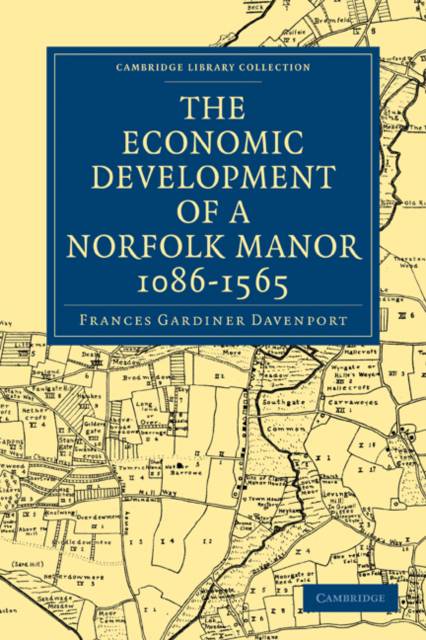
- Afhalen na 1 uur in een winkel met voorraad
- Gratis thuislevering in België vanaf € 30
- Ruim aanbod met 7 miljoen producten
- Afhalen na 1 uur in een winkel met voorraad
- Gratis thuislevering in België vanaf € 30
- Ruim aanbod met 7 miljoen producten
Zoeken
The Economic Development of a Norfolk Manor 1086 1565
Frances Gardiner Davenport
€ 64,45
+ 128 punten
Omschrijving
This highly detailed analysis of the medieval records of Forncett Manor, first published in 1906, is a case study of the development of an agricultural estate from early medieval to Tudor times. The economic system of the manor and the people who depended on it, aristocrats, tenants and serfs, is described and statistics are given where they can be extrapolated from the surviving records. Appendices list and transcribe important sections of the archive, including lists of tenants and financial records, as well as relevant passages of the Domesday Book. Starting from the documentary evidence, Harvard-trained Davenport does not speculate beyond the facts and offers little interpretation. However, she creates a highly instructive case study for medieval economic history that remains a rich source of valuable information for historians of later generations.
Specificaties
Betrokkenen
- Auteur(s):
- Uitgeverij:
Inhoud
- Aantal bladzijden:
- 232
- Taal:
- Engels
- Reeks:
Eigenschappen
- Productcode (EAN):
- 9781108016056
- Verschijningsdatum:
- 31/10/2010
- Uitvoering:
- Paperback
- Formaat:
- Trade paperback (VS)
- Afmetingen:
- 152 mm x 229 mm
- Gewicht:
- 344 g

Alleen bij Standaard Boekhandel
+ 128 punten op je klantenkaart van Standaard Boekhandel
Beoordelingen
We publiceren alleen reviews die voldoen aan de voorwaarden voor reviews. Bekijk onze voorwaarden voor reviews.







